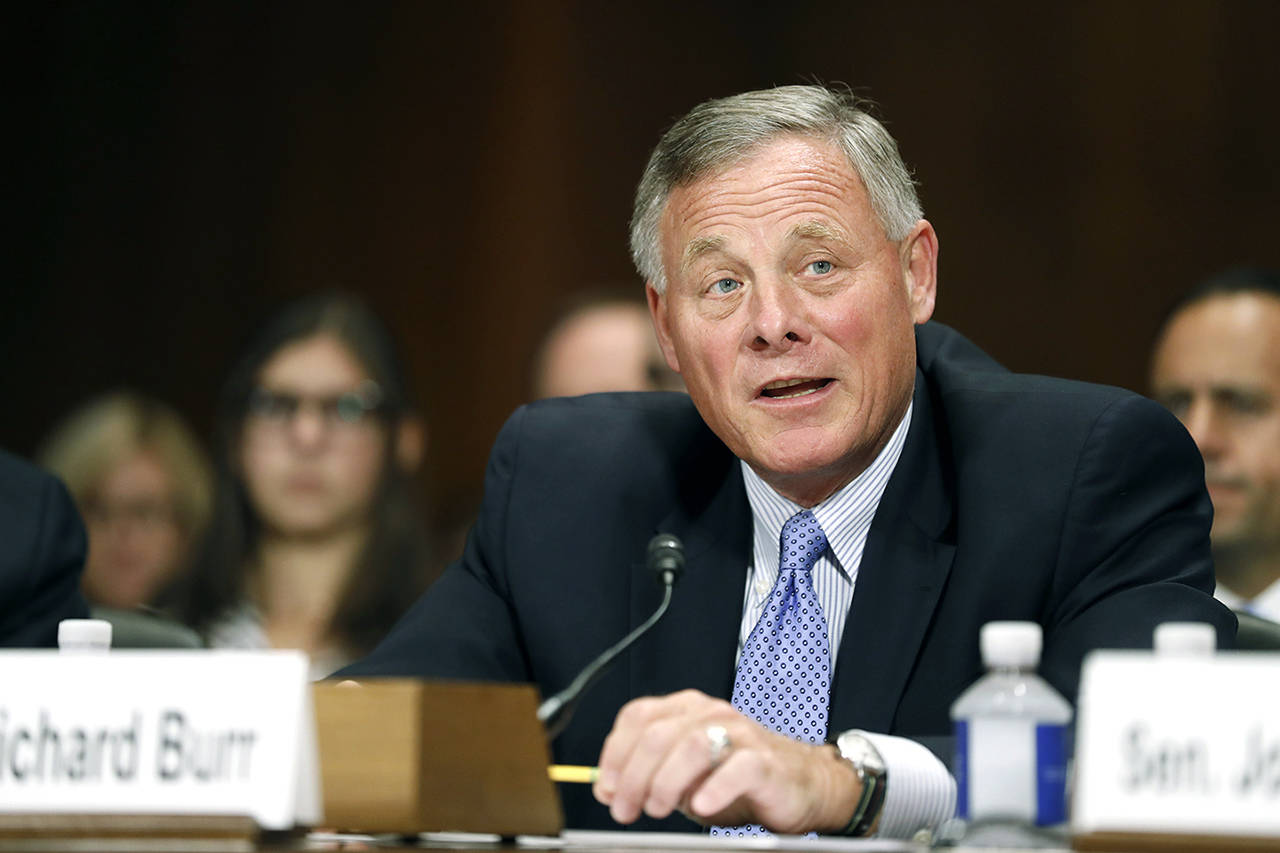By Karoun Demirjian / The Washington Post
WASHINGTON — The leaders of the Senate Intelligence Committee on Wednesday largely endorsed the findings of the intelligence community that Russia sought to sway the 2016 U.S. elections through a hacking and influence campaign, and they called for a “more aggressive, whole-of-government approach” to ensure future elections are not similarly compromised.
“There is consensus among members and staff that we trust the conclusions of the ICA,” Sen. Richard Burr, R-N.C., the committee’s chairman, said at Wednesday news conference, referring to the intelligence community’s assessment that Russia was behind hackings of the Democratic National Committee and Hillary Clinton campaign director John Podesta’s email account and had attempted to exploit public opinion by sowing false information, much of it through fake social media accounts.
“But we don’t close our consideration of it,” he added.
Burr also said that “the issue of collusion is still open” and would not be resolved until the committee’s work was done. He said that a deadline for the committee was the looming start of the 2018 primary season.
“We’ve got to make our facts, as it related to Russia’s involvement in our election, before the primaries getting started in 2018,” Burr said.
“You can’t walk away from this and believe that Russia’s not currently active,” he added.
Burr and Sen. Mark Warner, D-Va., the committee’s vice chairman, said the committee has interviewed more than 100 people and reviewed more than 100,000 documents, many of them from the intelligence community, President Trump’s inner circle and former members of the Obama administration. In some areas of the investigation, Burr added, investigators had “exhausted every individual” they could speak with in several areas of the probe — such as an April 2016 meeting at the Mayflower Hotel in Washington.
Burr said the committee had interviewed seven people about that meeting and that “the testimony of all seven were consistent.”
He said the committee had also “interviewed every person” that was involved in drafting the Republican campaign platform, suggesting that investigators had found no evidence of nefarious activity by Trump campaign officials in fashioning that platform to support a “strong ally in Ukraine, but also leave the door open for better relations with Russia.”
Burr also told reporters that the committee had “hit a wall” in attempting to verify the details of a salacious dossier about Trump’s alleged exploits in Russia, mostly because its author, former British spy Christopher Steele, had rebuffed the committee’s efforts to speak with him about his sources and about who paid for the compilation of the report.
“I can compel you to come,” Burr said, as a warning to any potential witnesses who might not want to comply with the committee’s investigation. But Burr later said that he had no such leverage over Steele, a British citizen, and could only threaten that the committee’s report “won’t be flattering” as it relates to him if he refuses to cooperate.
The committee has also scheduled an additional 25 interviews for this month, Burr added. Google executives, who have also been invited to testify publicly before the committee on Nov. 1, are expected to be among those asked to attend the closed-door interviews that have been scheduled in October.
The committee has lately been focusing on the role social media companies such as Facebook and Twitter played in the dissemination of false or misleading ads and stories planted or otherwise backed by Russian operatives.
Warner said that the tech giants were beginning to take the issue of Russian meddling more seriously and that the committee was “seeing increasing levels of cooperation.”
“I was concerned at first that some of these social media companies did not take this threat seriously,” Warner said. “I believe they are recognizing that threat now.”
The committee recently received over 3,000 advertisements from Facebook detailing the content of ads Russia had purchased to appear on the platform during the election.
Burr added that the committee would not release the content of those ads, though he added that the committee would be “fine” with any of the social media companies choosing to release the content of documents and other information they had turned over to the committee themselves.
Talk to us
> Give us your news tips.
> Send us a letter to the editor.
> More Herald contact information.

























